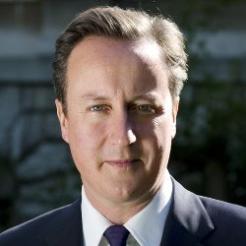The Charity Commission will receive £9m of extra funding over the next three years, as well as new powers to bar trustees and shut down charities, Prime Minister David Cameron announced today.
The new funding package includes £8m which will be used specifically to improve the Commission’s regulatory function, with a focus on tackling tax abuse and terrorism. Money will partly be spent on streamlining low-risk regulatory work to free up staff to monitor higher-risk areas. Exactly how the money is drawn down over the three-year period is still to be negotiated with Treasury.
The Commission has also been granted another £1m in general funds in its settlement for the year 2015/16. This funding is at present a one-off because Treasury will not commit to the Commission's budget in the year after the election. However it is likely to lead to more long-term funding, because it will form the starting point for negotiating future years' budgets.
Cameron also announced that new measures to toughen the Commission’s ability to regulate will be introduced in a new draft Protection of Charities Bill, previously promised in the Queen’s Speech, and due to be published today.
“I want to build a country which everyone is proud to call home,” Cameron said in a statement released by Number 10. “That’s why I want us to confront the menace of extremism and those who want to tear us apart.
“Today’s changes will help make sure that when people donate to charity, their money always goes to genuinely good causes. They will help us become a country that stands even taller in the world, and prouder and stronger too.”
New measures in the bill include:
- A ban on people with convictions for terrorism or money laundering from trusteeship
- A wider power to disqualify a person from being a charity trustee where the Charity Commission considers them unfit
- A power for the Commission to require a charity to shut down if there has been misconduct or mismanagement and there is a risk to public trust and confidence in charities
- A power for the Commission to issue an official warning in less serious cases, which will be stronger than the current power to issue advice and guidance
- An end to several loopholes, including one which allows trustees to avoid Commission enforcement action by resigning.
Commission to push for more powers in the bill
The bill contains most but not all of the 17 measures proposed in a consultation last year.
At the time umbrella bodies including NCVO expressed concern about the range of powers available. NCVO said it would analyse the bill to see whether those concerns have been addressed.
The Charity Commission said it welcomed the announcement, but was concerned that the draft bill does not include its proposal that people who are disqualified from trusteeship should also be banned from taking up other key roles in charities, such as treasurer or finance director.
It said it has also pressed for powers to prevent mismanagement or misconduct or other breaches before they occur, by directing trustees not to take specific actions.
“We will continue to push for more measures included in the consultation to be included in the bill,” said William Shawcross, chair of the Commission.
Responses to the announcement
Lisa Nandy, the shadow charities minister, said the new measures were a step in the right direction, but questioned whether there was too much focus on terrorism.
“The problems that have beset the Commission in recent years have had an impact on the whole charity sector," she said. "Ministers need to explain how they will ensure the Charity Commission can hold charities to account across the board, not just respond to one type of abuse that is attracting headlines."
Stephen Bubb, chief executive of Acevo, also said he was concerned that Cameron had suggested the measures were in order to counter terrorism.
“Charities deserve a properly equipped regulator, but packaging these measures as counter-terrorism is counter-productive,” he said. “The Charity Commission exists first to monitor and support the day-to-day work of charities helping some of the most vulnerable people in our country. They should not use this funding and these new powers as an excuse to lose focus.
“We will study the draft bill very carefully. From within the charity sector there remain doubts over the Commission’s ability to deliver. The quality of their services is under scrutiny. It’s time for them to step up.”
Karl Wilding, director of public policy at NCVO, said his organisation had supported the Commission’s call for new powers and would now examine the legislation to ensure it gave the Commission the powers it needed but did not intrude on individual charities' right to run themselves.
“It's been clear for some time that the Charity Commission's enforcement work has not been as strong as it could be,” he said. “We also know that it has also struggled to deal with routine queries from charities in a prompt manner. This investment and its plans to revamp its work are very welcome and we believe they have the potential to make a significant difference.
“It's crucial we have an effective regulator that deals quickly with any poor practice to help ensure the public can continue to trust charities.”









